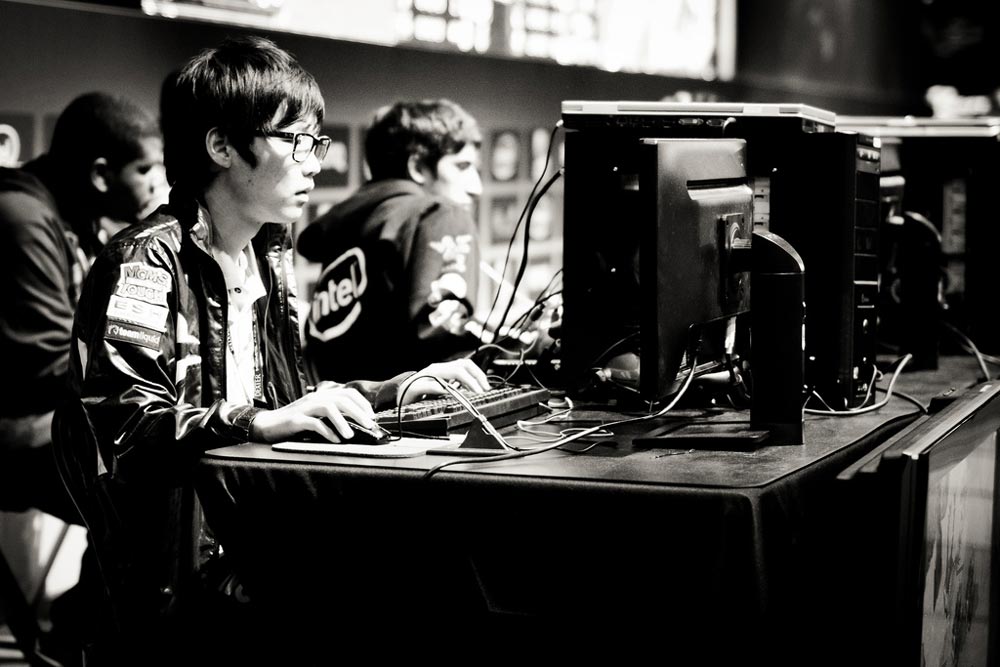
We analyze the challenges in terms of sport management that the esports industry is facing, a sector that could reach 2.4 billion dollars turnover in 2020
In collaboration with: Lukas Dorda
Perhaps some people, who are not videogame consumers, might be surprised to discover through this article that the new digital sector is being forged based on the involvement of the youngest generation: esports.
According to the Spanish Association of Video Games (AEVI), esports is the “name by which popularly structured videogame competitions are known by players, teams, leagues, publishers, organizers, broadcasters, sponsors and spectators“. They can be played on an amateur or professional basis. Other denominations are “competitive gaming“, “organized play“, “eGaming” or “pro gaming“.
Esports is a generic denomination that is used to describe the competitions and leagues of specific games, so we are not facing a single modality of game or franchise. In the same way that you do not compete in “sport”, but in football, basketball, etc., you do not compete in esports, but in League of Legends, Call of Duty, FIFA or Hearthstone.

EA Sports FIFA World * Image: BagoGames – Flikr
Competitive gaming is part of a much broader trend in the entertainment industry that allows you to enjoy video games collectively and socially.
Some sports theorists indicate that sport is a cultural field of activity where people interact and seek to improve their skills, competing in certain areas by established and agreed rules and regulations. This definition of sport leaves open the possibility of acceptance of electronic sports as another modality of real sport. Where many authors differ is in the need or the lack of need for physical activity for acceptance as a sport modality. It is necessary to clarify this sense of physical exercise, as has already been argued in the case of chess, which is an accepted sport modality (including in Spain). Chess can be justified by the need for physical preparation to remain “on alert” and the massive thinking process required during the many hours that a game can last, and the same argument could be applied in the case of esports.
Together with the classification of the esports sector as a sport comes the need to regularize the sector, because there are still many challenges that require clarification. What challenges are we really talking about?
- Structure – Nowadays, there is a monopoly of videogame companies that are the owners of intellectual property rights. That is putting them above the organizers of the tournaments, clubs, players, the two regulating bodies (World esports Association and International e-Sports Federation) and, lastly, the fans.
- Excessive use – As Johan Cruyff once said about his players who made up the Dream Team, “To reach the level of the Dream Team, 10,000 hours of training were necessary.” If the same rule would apply to the phenomenon of esports, it means that many children and young people will need to dedicate hours and hours to playing videogames to become the best. Is it ethical to promote this kind of culture?
- ‘Illegal’ betting – With the rapid growth of the esports phenomenon, betting companies are incorporating more and more betting offers for esports. However, how to predict and regulate that players will not lose on purpose in legal/black market bets?
- ‘Doping’ in esports – While traditional sport continues to fight against doping as much as possible, esports can be affected by ‘cheating’ and using various unallowed aids and tricks. Is it possible to regulate the issue of psychological doping in esports?
- Engagement – Despite its exponential growth and the hundreds of millions of spectators, the esports industry needs to think about the challenge of attracting even more spectators and how to increase their affinity towards this fast-growing sector in general.
The figures of the sector
The market analysis company Newzoo published a report at the beginning of 2017 entitled An overview of esports in Europe, which estimated that this sector could be worth 2.4 billion dollars in 2020. In addition, it also predicted that the total audience of esports in Europe in 2017 would be 77 million people and that media rights sales would grow more than 500% between 2016 and 2020. Furthermore, it forecast that Europe would represent 20% of the total of the esports audience in 2017. In conclusion, it estimated that the electronic sports industry would generate about 209 million euros in 2017 in Europe alone, which represents 32% of the total income worldwide (660 million dollars). From this estimated total income of the sector in 2017, the Dutch consultancy company expected the figure to increase to 906 million dollars in 2018, exceeding the most optimistic estimates.
This would mean a 38% growth compared to last year (the forecast for 2017 was 34%). A large part of this boom (77%) will be generated by investments by brands, both endemic and unrelated to the sector (through sponsorships and advertising or content licenses and streaming/broadcasting rights), which would mean a total income of 694 million dollars and 48% more in comparison to the previous year.
“As a consumer phenomenon, esports continue to see their huge base of passionate fans grow across the globe. As a business, electronic sports are entering a new and critical stage towards maturity,” says Newzoo CEO Peter Warman, referring to the new and large investments and competitive infrastructures that have recently been created. “The profitability and the revenue generated by the investment are, for many organizations at the heart of the esports economy, a challenge“, he adds.
On the other hand, Newzoo estimates that the total esports audience for this year will be around 380 million viewers (165 million enthusiasts and 215 million occasional viewers). On top of that, every regular viewer in 2018 will generate an average revenue of $5.50, 20% more than last year. Interestingly, more than half of the regular viewers (53%) come from the Asia-Pacific region. These studies contrast with that published by the consultancy Superdata, which calculates the global business to be worth more than 1.5 trillion dollars, although we prefer to be more cautious and stay with a less optimistic perspective.

To wrap this up, esports is an expanding sector with an exponential growth rate that already has official competitions, professional teams, specific sponsors (with growing interest from companies outside the sector), its own channel on the internet (twitch.tv) and, above all, a remarkable number of followers, formed mainly by young people because 70% of esports fans are less than 35 years old. The most well-known players on the planet also share this profile, with the biggest stars only 17 or 18 years old. It is clear that electronic sports are linked to the generation that has grown up with videogames from an early age and that sees the professionalization of this sector in the world of competitive sport as something completely normal.
Facing this disruption, as managers of sports companies, we must ask ourselves what challenge esports presents for the management techniques we know.
The management challenges
The relevant issues for us are the following: Can we apply knowledge in sport management to esports directly? Is esports a separate discipline or does it have many similarities with the management of non-digital sports entities? Surely the answer is not simple, but everything suggests that the accumulation of knowledge in sport management over the years is a great basis for esports. However, there are very distinctive characteristics of these companies that attract attention and that undoubtedly constitute management challenges that will need to be addressed. Some of them are the following:
- They are intercontinental and multicultural companies, in which the majority of workers only interact digitally and almost never in person. Managing people in this environment requires a new perspective.
- Due to the above, the mercantile, labor, monetary and fiscal relations are very complex.
- Sponsorship, the real engine of the sector, combines a face-to-face character (at events) with purely digital aspects, bearing in mind that these aspects are clearly to be developed.
- The connectivity of clubs, players, sponsors and fans is direct and live. The communication, reproduction and business channels are totally alternative to the traditional channels. Digital natives rule, while digital migrants have to face the new reality.
- The concept of managerial skills is far from how we know them today.
In conclusion, welcome to the esports sector that will help to develop the knowledge about sport management, will bring new learnings and, above all, will require great professionals to manage it. We welcome you into the new era!
MASTER IN
Sport Management Online
The main objective of the Master in Sport Management Online is to train you to use management tools to help you recognize business opportunities, develop strategies, anticipate changes, optimize resources and analyze information judiciously, without the obstacles of time or place and adapting the pace of study to your individual workload and availability.
Sign up





